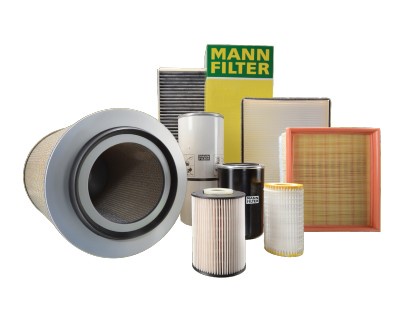Hydraulic systems are vital in many industries, powering everything from big machines to aerospace technology. A key part of these systems is hydraulic pressure filters. They are crucial for making sure things run smoothly and last a long time. Understanding the significance of filter systems and applying efficient maintenance practices is vital. This awareness is crucial for averting possible problems, minimizing downtime, and ensuring optimal functionality. Diligent maintenance enhances the overall efficiency and lifespan of fluid systems, supporting continuous operation.
Hydraulic Filters play a crucial role in managing unwanted elements in fluid systems. During machine operation, dirt, debris, and metal particles can contaminate hydraulic fluid, accelerating the wear and tear of vital components like pumps and valves. Acting as the initial defense, filters prevent these undesirable elements from entering, ensuring the safety and longevity of the entire fluid system. Maintaining a clean fluid system is integral to efficiency, preventing increased friction, poor lubrication, and potential breakdowns, ultimately enhancing energy efficiency and prolonging the lifespan of critical components.
Maintenance Best Practices for Hydraulic Pressure Filters
Regular Inspection and Monitoring
One important way to take care of filters that deal with fluid pressure is to check them regularly. Make it a routine to visually inspect the filtration systems, watching for any damage, blockages, or operational issues. Utilizing technologies that monitor the condition, such as pressure sensors and particle counters, provides real-time information about its performance and indicates when maintenance is needed.
Establishing Replacement Intervals
Figuring out the right times to change fluid pressure filters is crucial to keep them working well. How often you need to change them depends on factors like the type of filtration, how the system operates, and the level of dirt in the fluid. By adhering to the manufacturer's recommendations and routinely checking the fluid, you can determine the optimal time to replace the filtration systems. This practice helps prevent parts of the system from wearing out faster than necessary.
Addressing Bypass Issues
Problems with bypass can make fluid pressure filters not work well, letting unfiltered fluid move around in the system. It's crucial to regularly check and address any bypass issues, such as seals that aren't working right or components that aren't installed correctly. Fixing bypass problems promptly prevents unwanted substances from passing through, maintaining the cleanliness of the fluid in the system.
Proper Fluid Handling Practices
Good practices for taking care of pressure filters go beyond just the filters and also involve handling the fluid the right way. It's important to use containers that are clean and make sure the fluid doesn't get any unwanted stuff in it when you store it or put in new fluid. If the fluid gets dirty during maintenance, it can work against what the pressure filter system is supposed to do.
Training and Operator Awareness
Teaching operators why filter systems and maintenance are important is a key part of making sure filtration works well all the time. Training programs need to cover selecting the appropriate filtration systems, how to install them, and why regular maintenance is crucial. When operators are knowledgeable about these aspects, they can identify issues early on and contribute to the overall effectiveness of the maintenance program.
Hydraulic Filters are indispensable components in maintaining the integrity and efficiency of hydraulic systems. The significance of their involvement in controlling contamination, improving efficiency, and extending the life of components cannot be emphasized enough. It is crucial to adopt thorough maintenance practices to fully leverage the advantages of these systems. Prioritizing fluid cleanliness and following recommendations enhances overall reliability, reduces operational costs, and extends crucial component lifespan. This approach guarantees the ongoing success of applications in diverse industries.


No comments yet